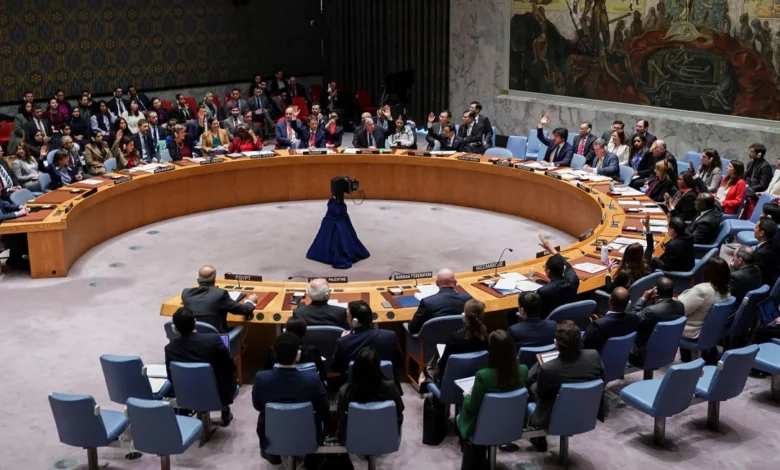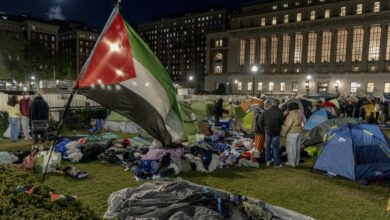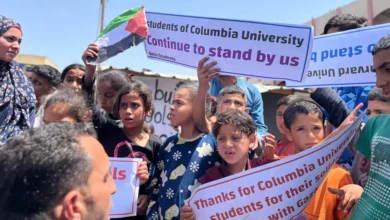
The United Nations Security Council on Friday approved a resolution that calls for humanitarian pauses between Israel and Hamas, increased aid to Gaza and the creation of conditions that will allow for a sustainable end to fighting, ending days of closed-door negotiations.
The resolution calls for “urgent and extended humanitarian pauses and corridors throughout the Gaza Strip for a sufficient number of days to enable full, rapid, safe, and unhindered humanitarian access.”
The United States and Russia abstained from the vote, deciding against using their vetoes as permanent members of the body that would have shot down the resolution.
US Ambassador Linda Thomas-Greenfield praised the resolution but abstained from voting in favor of it after the text failed to include a condemnation of Hamas.
“We would love to see condemnation of Hamas,” a senior US diplomat told CNN. “We don’t understand why the council can’t just explain exactly how we got to where we are. But at the end of the day, that’s what diplomacy is all about.”
Throughout what the diplomat called “marathon negotiations,” the US was eager to not vote against the resolution after suffering global blowback for vetoing the last Security Council resolution that called for an immediate ceasefire.
Instead, in Friday’s resolution the language called for “urgent steps” to lay the groundwork “for a sustainable cessation of hostilities.”
“At the end of the day, creating conditions for sustainable cessation of hostilities is something that everybody’s looking to do,” the diplomat said. “And I think the big dispute over the last few weeks has really been: ‘Is the time right, right now, for a cessation of hostilities? Or do the conditions need to be right?’ We were comfortable with this idea of the conditions needing to be right for that.”
Sources had previously told CNN that a major sticking point over the draft was a call for the UN to “establish a monitoring mechanism in the Gaza Strip with the necessary personnel and equipment, under the authority of the United Nations Secretary-General.”
The US had argued that the proposal of a UN-created monitoring mechanism for aid going into the Gaza strip would be cumbersome and slow down the delivery of critical assistance.
The senior US diplomat told CNN that the initial idea to set up a new monitoring system inside Gaza during the war was “completely unworkable.”
“The UN told us privately there was no way they could do this. And our assessment was that it was not going to replace any existing mechanisms for the flow of aid,” the diplomat said. “So it essentially be grafting on a brand new, entirely duplicative mechanism to the aid that’s already going in and would probably create chaos and kind of slow everything down.”
Diplomats had been working behind closed doors to finalize the resolution drafted by the United Arab Emirates. A US official familiar with the discussions said the draft had started with calling for an “urgent cessation” of hostilities. Neither the United States nor Israel currently supports a ceasefire, so the US countered with “a more passive formulation,” the official said, describing the language that ended up in the resolution.
“Israel is aware and can live with it,” the official added, while arguing it was not the language on the cessation of hostilities that caused the delays but rather the disagreements over the monitoring mechanism.
The representative from Russia put an amendment before the council just before the vote that would have changed the language back to the original “immediate cessation of hostilities” but it was vetoed by the US.
An Israeli official responded to the vote, telling CNN, “We are grateful for the US efforts to address the most problematic elements in the proposed resolution. They really worked hard, and we really appreciate their efforts.”
“In our view, the resolution is unnecessary and proves the inability for the UN to play a positive role in the conflict. After nearly three months, the UN has yet to condemn the massacre of October 7,” the official said.
Thomas-Greenfield announced late Thursday that the US would support the measure after previously voting four times to delay a vote on the resolution. In the end, she abstained from the vote rather than actively voting in favor of the measure.
“We do have some principal positions, including that we think the council should be able to just clearly state that Hamas is responsible for kicking off this conflict,” the diplomat said.
“This resolution does a couple of things that the past resolution did not do,” the US diplomat said. “One is that it deplores all acts of terrorism. And that obviously is speaking to what Hamas is responsible for, even though it’s not naming it.”
US National Security Council spokesman John Kirby said Thursday that President Joe Biden had been in touch with members of his national security team and officials representing the US and the UN on discussions surrounding the resolution.
Friday’s resolution comes as the Biden administration has grown more vocal in expressing concerns over just how brutal the war in Gaza has been.
The US has vetoed previous measures at the UN Security Council and voted against a call for a ceasefire in the larger UN General Assembly.
Last week, the wider United Nations General Assembly voted to demand an immediate ceasefire in war-torn Gaza, in a rebuke to the United States, which has repeatedly blocked ceasefire calls in the Security Council.
While the General Assembly vote is politically significant and seen as wielding moral weight, it is nonbinding, unlike a Security Council resolution.
“As with any diplomacy, there’s going to be a compromise,” the US diplomat said. “There’s language that we would have preferred to see strengthened. There’s language that we wouldn’t quite have phrased it the way that was.”
This story and its headline have been updated with additional developments on Friday.




